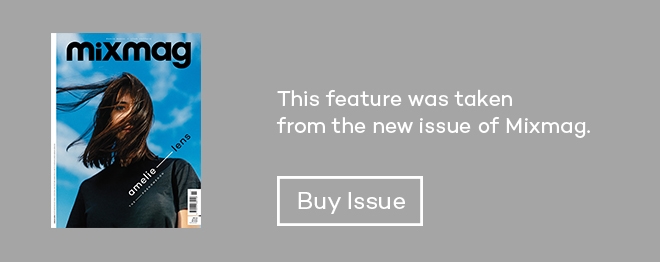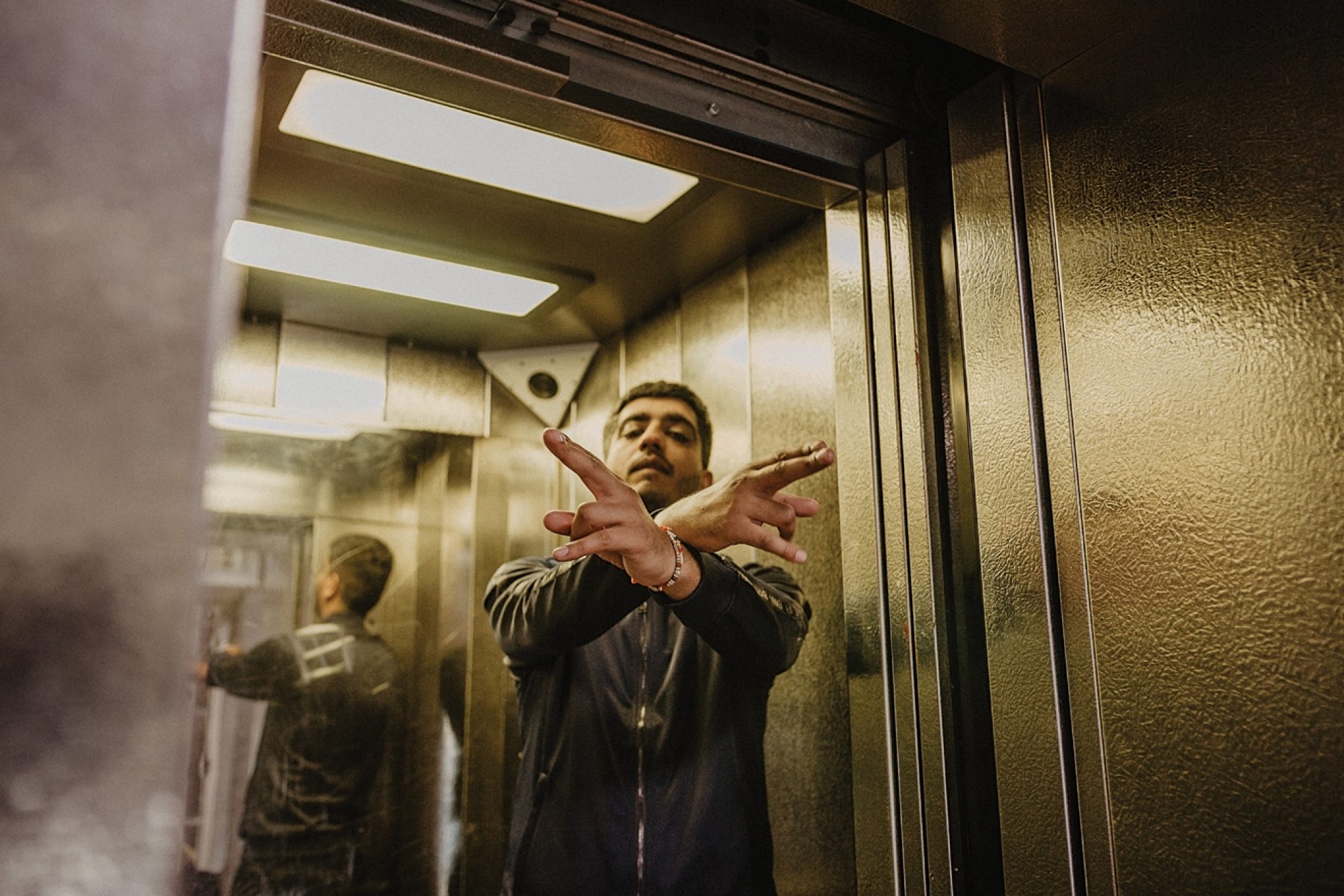 Artists
Artists
Steel Banglez is the one-man production powerhouse behind the new wave of UK hip hop
DJing at 11, jailed at 16, the Newham native is speaking to the universe
It’s raining in the East London borough of Newham. Drizzle slicks the tower blocks and scrubland sprawl that mark the outer edges of the city. Dog walkers navigate the straggling long grass and thickets of nettles. This desolate scene is minutes from the house where Steel Banglez, aka Pahuldip Singh Sandhu, grew up. Years back, he played football out here. Now he’s one of the most successful producers in Britain; a one-man powerhouse producing hit after hit of glittering urban pop, his sweet melodies smuggling roughneck basslines into the Top 40. Today, he’s here with a large, fussing photographic team from a global sports brand, one of the many companies keen to tether their product to Banglez’ impeccable street credentials, looking to capture a little bit of that bad-boy-done-good glamour. Taller and skinnier than everyone around him, clad in a comfy-looking trackie and exuding a good-natured vibe, he’s calling out requests to one of the runners who’s blasting tunes from a Bluetooth speaker: “Nah, put on the J Hus and Burna Boy,” he shouts. “That’s my jam!” Even mid-shoot, he can’t stop thinking about the music.
The music first came to Banglez from his mum, when he was growing up in a house round the corner. She’d play the harmonium, or blast Bollywood show tunes from the radio whilst cooking, feeding the family a diet of movie soundtracks alongside their dinner.
“Then I’d jump in my dad’s car,” he remembers, “and he’d have really political poetry on, stuff that originates from Punjab. It’s like our version of bashment, it has a lot of anger in there. It comes from a place of civil war; there were musicians who spoke about how the people got ripped off. It’s similar to how hip hop was when it started. They’re telling stories of real life events.”
Banglez’s dad started his own Punjabi language magazine for the British Sikh community. It’s still operating now, and the Newham office it runs from is the spot Banglez has chosen to hold our interview. The space is a cramped, resolutely analogue room with every inch of wall space given over to heaving bookshelves, photos of prestigious Sikhs, or files and magazines. The producer is relaxed here, pulling a bottle of whisky from the cupboard and offering a glass as he settles into his life story – a story that returns time and again to the building we’re sitting in.
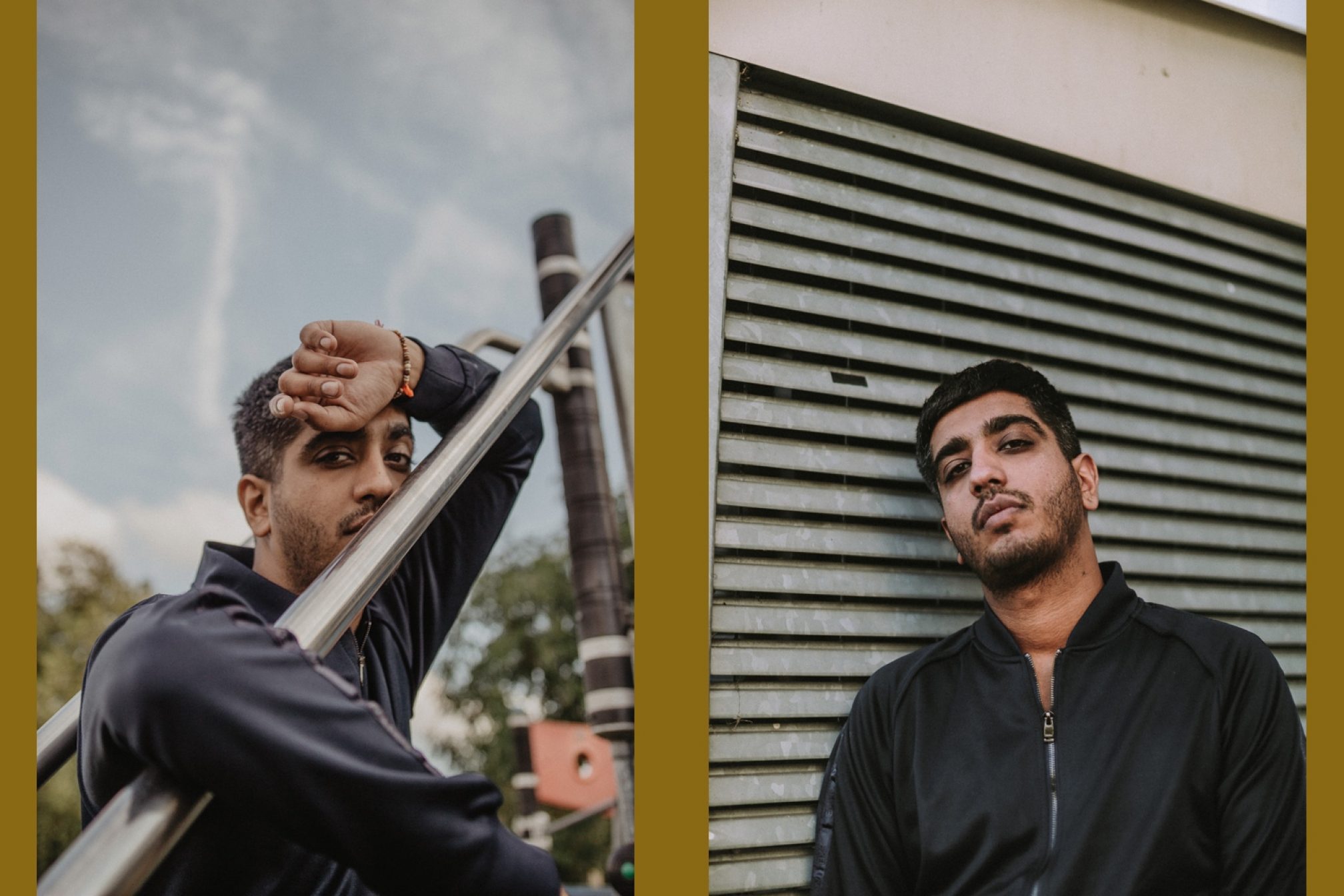
“We got this office when I was seven years old. My dad took out a loan and got this place to run his magazine from. My elder brother Sav put his decks downstairs. My other elder brother was a DJ as well, and we used to cause too much noise at home. After five o’clock my dad would go home, so we’d get on the decks downstairs.”
Through fluke or fate or some alignment of the stars, 90s Newham was incubating the most exciting talents of a generation. Having a spot for kids to hang out and play music in the middle of it, even if the decks were only belt drives (“I used to dream of a Technics!” Banglez laughs) meant that the basement of the little office became a hub for a golden generation.
“D Double E, Wiley, Slew Dem, Chronik, NASTY Crew, Tempz – they’d all come down here. I was ten or eleven, DJing, trying to prove my mixing. When I was fifteen I started working at an off license down the road my uncle had, and I was on twenty quid a day, which was fucking good, bro! So I started saving up and buying records… I’d go to the grime shop Rhythm Division in Bow, I used to come in with eight pound in coins, and I’d sit there for half an hour listening to all the new tunes.”
This obsession with music, first garage, then the nascent grime scene, took over Banglez’ mind. Wiley – then just a local hero, rather than the MBE-sporting icon he is today – had been creating a cottage industry pressing up and selling his white labels, proving that making music wasn’t some abstract career that relied on a label to make it profitable; you just got access to a PC, a hack of whatever software you needed, pressed your dubs and sold to your peers. Banglez wanted in – but was struggling with the first step.
“We couldn’t afford a PC. My brother begged my mum to get one on finance from PC World. In the end she got it, but my brothers – they’d not give me the password. But I knew how to hack into it. From there I used to mess around on Acid Pro and Cubase. I just wanted to express myself. I’d sample [grime classics] The Endz or 'Eskimo' and make beats from them, or mix Bhangra tunes with Tupac instrumentals, that sort of shit.”
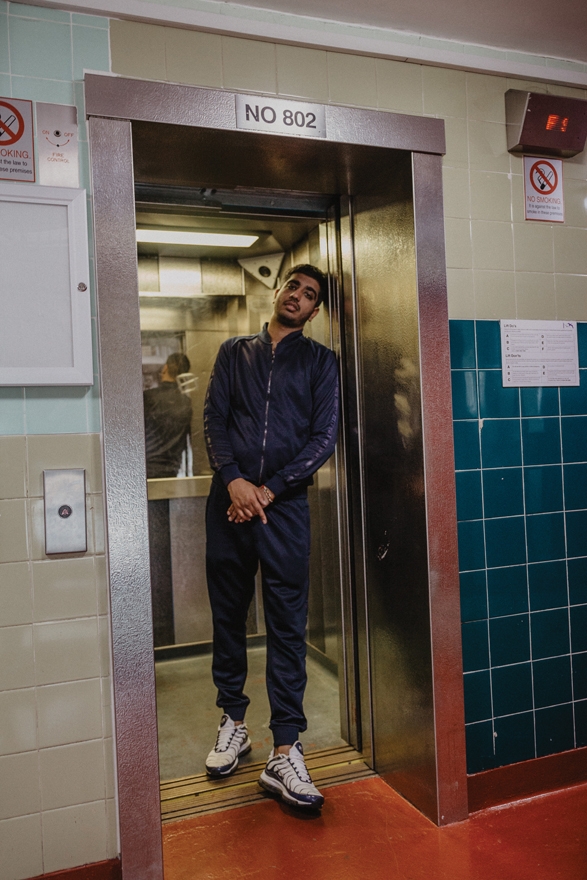
While he was teaching himself production at home, Banglez was also excelling in his music GCSE, learning piano, drums, harmonium and picking up an easy A* – which, paradoxically, made him start bunking school. “I was like, ‘Fuck this’,” he laughs. “I’ve made it! I’d register in the morning then jump out and DJ and produce all day.”
The grind started to pay off. His first successful beat, an insistent grime banger built around the string intro of Terror Squad’s ‘Lean Back’, was vocalled by Meridian Crew’s Big H on the classic Practice Hours 2 DVD. With a taste for it, Banglez started pushing himself forward, setting his sights on working with another local legend.
“When I was 14, I spotted D Double E. He was parked up in this purple car, a two-seater convertible, wearing a Kangol hat. It was a grey day, grey as fuck. I went up and said, ‘I’ve got beats!’ I gave Double a CD, he was like ‘Safe, man’. I was gassed! That was when I started speaking to the universe, saying, ‘Yo this guy is definitely gonna do one of my tunes, I can feel it’. I was just speaking that energy, speaking to the magnetic fields all round the world that were gonna pull it together. And he did. He recorded ‘Colours’ on there, which was a big back-in-the-day tune for Double. This was 2003, 2004, golden age period.”
This led to Banglez shadowing Double, following the MC around as the grime scene rose up and up. They’d go to Club Rex in Stratford, Palace Pavilion in Hackney, or out of London to the seminal Sidewinder raves, the underage Banglez sneaking in and soaking up the culture. As the momentum became unstoppable, the majors started snapping up talent. Dizzee was signed, Wiley was signed, Double signed to Dizzee’s Dirtee Stank imprint, Kano was making noise, Roll Deep were heading for the charts – East London was pouring out talent, it was the most exciting of times...
“And I ended up in jail. I was sixteen and a half. I got caught. I was stopped in Croydon, and there were armed police everywhere. I can laugh about it now, but at the time I was like naaaaah. I was done.”

He doesn’t want to go into too much detail on the case. Whatever happened, he got sent down for six-and-a-half years and ended up serving three. Prison was where he was given the name Steel Banglez, after the Sikh bracelets known as ‘karas’ he wore on his wrists. He split his time between reading obsessively “on investment banking, on astrology, on Mozart, on Sikhism, on being Punjabi, a lot of my culture,” and, as ever, working on music. Prisoners are allowed a single instrument: a guitar or keyboard. After becoming frustrated with the guitar, Banglez got a keyboard in his cell and, like a modern-day bluesman, started composing beats from his cell.
“It was one of the keyboards where the keys turn into drums. I’d play drums for like a minute, stop, pull it back and play the keys over the top, and the guys I’d make it for were buzzing. It was a very important era – in jail I met Fix Dot’M and Yung Meth, who are close to Giggs.”
When the 21-year-old Banglez got out, Giggs was blowing up. The grime scene was about to switch lanes. He could sense it, and was determined not to be left behind. “I was like, here we are! Tempo change! If I don’t catch on to this now I’ll be fucked. So I started feeding Yung Meth and Fix Dot’M beats, and in 2008 we done ‘A Fix of Meth' which was my first mixtape. I was sampling Indian tunes, making operatic beats.”
Jumping on the South London rap wave got Banglez known in the underground as a producer capable of epic rhythms. He invested in a studio in Canning Town, where he worked with Krept & Konan (notably producing ‘Go Down South’, a UK-flavoured attempt to plug into the West Coast sound of Tyga’s then ubiquitous club track ‘Rack City’). Others such as Dot Rotten and Wiley would pass through the doors – though in the end Banglez was chucked out, he says for “people pissing in the stairs”. Back in his home studio he poured his efforts into building tracks for up-and-coming rapper Cashtastic. The duo were on the up, but then fate intervened once more. Cashtastic was deported to Jamaica, victim of then-Home Secretary Theresa May’s ‘hostile environment’. Banglez went into a tailspin.
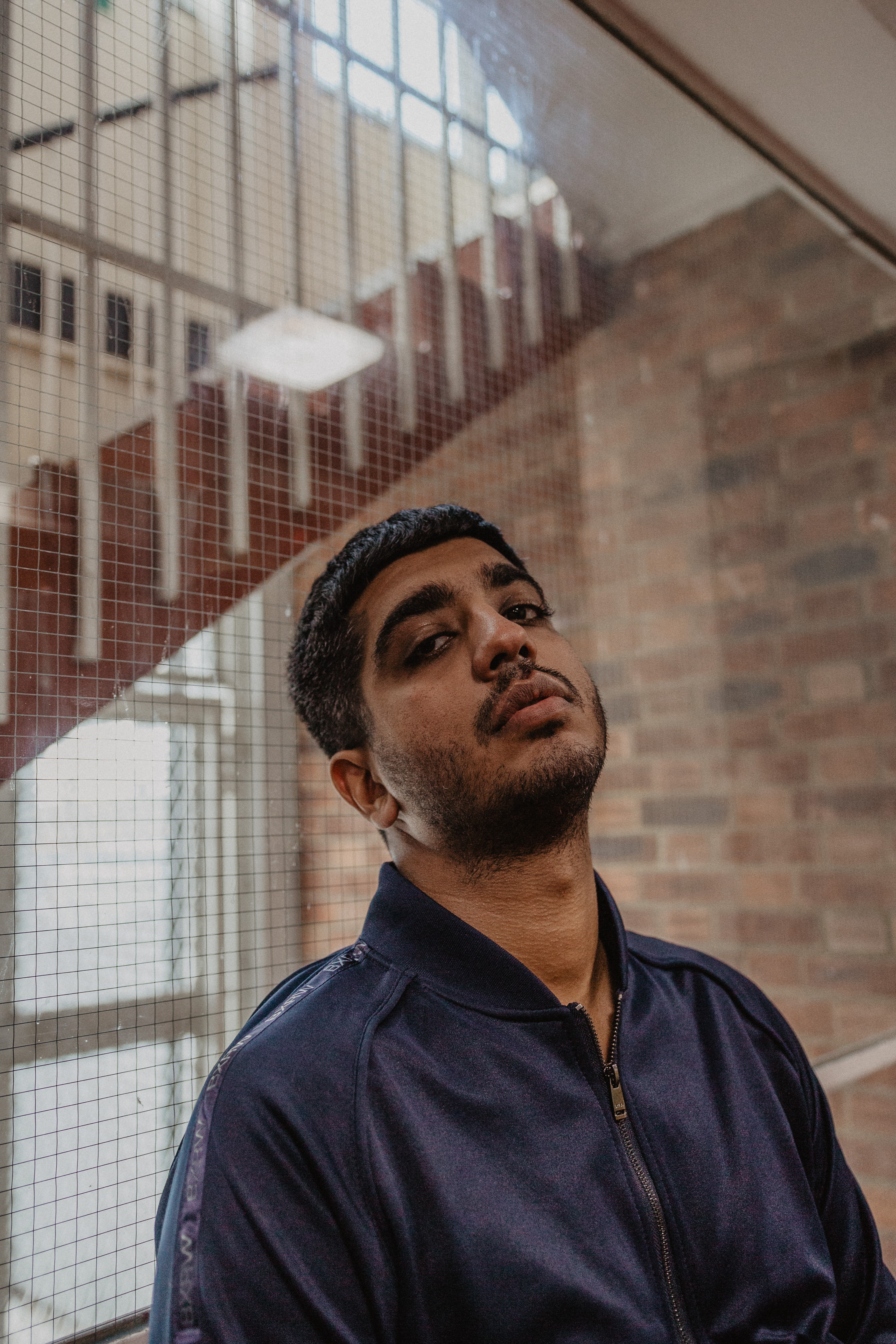
“My mind froze. I had worked myself to exhaustion. I came crashing down. I had a brand new studio and I just couldn’t fucking make tunes. Cashtastic got deported and I felt for him. I’d put so much work into his dream, I was upset. I didn’t have no manager, nothing. Sitting in my house, broke as fuck, no car, just finished. My head was spinning. What the fuck was I gonna do? I couldn’t make a beat for two years.”
In the end it was music that pulled Banglez out of this fug. MoStack was a street kid with a bizarre, slurring flow. Banglez heard ’Stack’s street hit ‘No Buddy’ and had an epiphany.
“I knew this kid was gonna blow. So I linked him, went round and saw his circumstances, and I knew what I had to do. I’d pick him up every day and take him to the studio. I did the whole ‘Gangster With Banter’ mixtape. He was such a sick kid – and I fell in love with music again!”
Timing is everything. Banglez caught ’Stack at the right point, just as Britain was hungry for a new sound. The MoStack tunes carried weight on the underground, and gave the producer the creative reinvigoration he needed to start working once more. But it was when he connected with a then unknown Brummie rapper called MIST that things truly exploded. Taken with MIST’s ability to pepper patois with Asian slang (“he was uniting communities – no-one had done that”), Banglez started writing the beats that would launch MIST onto the UK rap A-list. Over a series of records, Banglez and MIST became untouchable. By 2017 the Banglez tag was ubiquitous; a guarantee that whatever followed would be a gleaming, club-killing hit.
The UK’s cultural landscape seemed to shift. As the grime revival drew the DNA of East London riddims towards its first true mainstream acceptance, Banglez, a producer who had that same DNA running through him, was perfectly placed to update the sound, overtly slowing down garage licks to rap tempos, studying how DJ Mustard had done the same with house music, and creating a polished UK response. Hit after hit followed: ‘No Words’ by Dave feat MoStack; all of the MIST catalogue; J Hus’s ‘Fisherman’; Steel Banglez’ solo releases ‘Bad’, ‘Money’ and ‘Your Lovin’'…
Now, Steel Banglez is out on festival circuits as an act in his own right, bounding across the stage and hyping the crowds as his DJ plays records that have dominated the airwaves and charts for the last two years. All those years of grind have at last resulted in hard-won success. So what next?
“I’m gonna show the levels of a producer next. What you hear now is just watered-down Banglez. I’ll show you the maddest of genres: jazz, Bollywood, I can conduct an orchestra, anything. I’m only gonna grow from here. If you listen to Steel Banglez from 2008 to the sound today, I’m a totally new guy. I just want to move with the times.”
He sits back and sips his whisky in the heart of the Newham that made him, amid the relics of childhood that still beat through his sound, and reflects. “It doesn’t matter who you are or where you come from. You just gotta be human, you just gotta be you. Do your ting.”
‘Your Lovin’ and ‘Hot Steppa’ are out now on Gifted Music/Warner Music
Ian McQuaid is a freelance writer, follow him on Twitter

